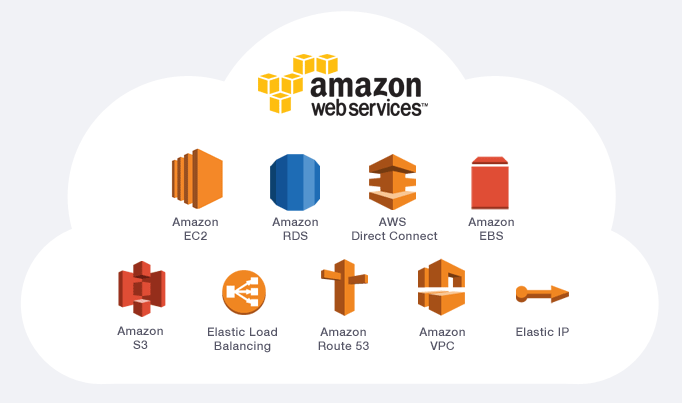Cloud Hosting-Cloud is about how you do computing, not where you do computing.
Cloud Hosting-Cloud is about how you do computing, not where you do computing.

Cloud hosting is the procurement of computing resources from a cloud computing provider or facility to host data, services and/or solutions. Cloud hosting is an Infrastructure as a Service (IaaS) cloud delivery model that provides a suite of remote/virtual services.
Cloud hosting is widely seen as a better option to shared hosting because of its ability to handle large amounts of traffic, its improved security protection, and its reliability. However, these extras do come at a cost, and most cloud hosting options are more expensive than shared hosting plans.
Benefits of Cloud Hosting
1. Flexible Pricing Structure
In most other styles of hosting you pay a monthly rate regardless of whether to not you utilize all of the server resources. With cloud hosting, you only pay for what you use.
So, if you’re expecting a post to go viral, or your site is receiving an unusually large amount of traffic, you don’t have to completely upgrade your package. All you have to do is scale your resources up during the traffic surge and down once traffic levels return to normal. Instead of having to pay for high hosting fee across the board your pricing matches the total amount of server resources you’re using.
2. Very Easy to Scale Server Resources
With cloud hosting scaling your server resources couldn’t be easier. For most cloud servers you’ll have access to an intuitive site management dashboard that lets you view your site’s performance in real time. You can scale server resources up or down on the spot without having to wait for approval from your hosting provider.
3. Redundant Server Environment
With most types of hosting your site lives on a single server. If something were to happen to that server, then your site would go offline and you wouldn’t be able to get back online until that server is fixed. When your hosting is redundant a site backup will take over your existing site within seconds. However, not all redundancy is created equal. With cloud hosting, you’ll have a concurrent live version of your website that your host can load immediately.
4. High Up time and Availability
If you’re using any kind of traditional hosting your site’s uptime depends upon the physical server environment. If it goes offline, then so does your site. Unless you’re utilizing a CDN, which can help to reduce your site’s overall downtime.
Cloud hosting has high uptime built into its structure. Since your site will be virtually using the resources of multiple servers, you can simply be transferred to another server if one goes offline or is experiencing technical issues. Plus, with your ability to scale server resources on demand your site won’t go offline from an unexpected traffic surge.
5. Speedy Server Setup Process
You can deploy a cloud hosting server in record time. Unless you’re signing up for a beginner shared hosting package, it might take some time to deploy your web server. This can be a hassle if you need your site online quickly, or you’re doing a host migration and you’re stuck waiting for the server to be ready.
6. Safety From Server Hardware Issues
With cloud hosting your site is isolated from any physical server issues including hacking, hardware failure, or system overload. When a physical server is compromised or experiencing an issue, you can simply utilize the physical resources of another server – all without having any downtime.
7. Faster Website Speed and Performance
Most cloud servers can offer you blazing fast speeds. In addition to being able to effortlessly increase your site’s capacity, cloud hosting also allows for easier load balancing between multiple server environments, which can help to put much less strain on a single server’s resources.
Of course, the server hardware foundation will also influence the speed of your site, so look for a cloud host that has multiple caching layers, premium server hardware, and low-density servers.
8. Works Great for Sites With Scalable Traffic
If your traffic levels are up and down, then it’s going to be hard to find a host that’ll give you the best value for your money. With cloud hosting, you have the ability to easily scale your server resources up and down on an as-needed basis. It’s very difficult to find this level of scalability with any other style of hosting.
9. Simple Server Management Dashboard
In the past cloud servers were a little difficult to manage and it required technical expertise to manage and scale your server effectively. But, with today’s cloud hosting you can easily keep track of your hosting and scale it on demand via an intuitive dashboard. You don’t need to have a technical background just to run your cloud server.
10. Decrease Your Overall Environmental Impact
If you’re a company or individual who’s concerned about their environmental impact, but need a hosting solution that goes beyond traditional shared hosting, then cloud hosting could be exactly what you’re looking for. With cloud hosting, you’re utilizing fewer overall datacentres and are only using the server resources you actually require at the moment. By streamlining your resource and data use you’re creating less of an environmental impact.

Layots are partner with world class Cloud market place like AWS, Azure, Google, NTT, Alibaba etc.to provide Public/private/hybrid cloud services based on client requirement.
AWS : Amazon Web Services (AWS) is a secure cloud services platform, offering compute power, database storage, content delivery and other functionality to help businesses scale and grow. In simple words AWS allows you to do the following things- Running web and application servers in the cloud to host dynamic websites

Azure: Microsoft Azure is a cloud-based solution development platform. It enables subscribers to create no-code web apps and code-based web apps. It provides Artificial Intelligence components in building those apps. It enables you to host and migrate, your databases to the Cloud.

Google : Google Cloud Platform is essentially a public cloud-based machine whose services are delivered to customers on an as-you-go basis, by way of service components. A public cloud lets you leverage its resources to empower the applications you build, as well as to reach a broader base of customers

Public Cloud :The public cloud is defined as computing services offered by third-party providers over the public Internet, making them available to anyone who wants to use or purchase them. They may be free or sold on-demand, allowing customers to pay only per usage for the CPU cycles, storage, or bandwidth they consume.

Private cloud : private cloud deployment is where you maintain your own servers and infrastructure that hosts your applications and data. A private cloud is a single-tenant environment, meaning the organization using it (the tenant) does not share resources with other users. Those resources can be hosted and managed in a variety of ways.In any case, the private cloud and its resources are dedicated to a single user or tenant.

Hybrid Cloud: Hybrid cloud is a cloud computing environment that uses a mix of on-premises, private cloud and third-party, public cloud services with orchestration between the two platforms
Co-location and Managed Hosting
Got a business that you want to take worldwide…!! Empower your business by expanding your reach across globe by using our data centre hubs globally.
Feature:
• Higher bandwidth
• flexibility to choose to install any software or applications
• avoid redundancy
• Scalability.
• Hubs across globe
• 24* 7 technical support

Managed Hosting
Our Managed server hosting, networking, storage configuration, maintenance and support is designed to provide optimal performance. Our Managed hosting services include Cloud Hosting, Dedicated Hosting.
We got the technical expertise to create a perfect custom solution for your server hosting.
Features:
• Dedicated server
• Best in class infrastructure
• Custom configuration
• High end technical specification
• Faster uptime
• On Demand backup


